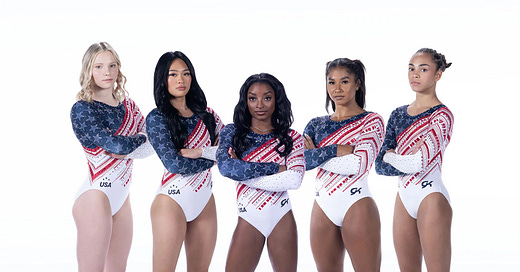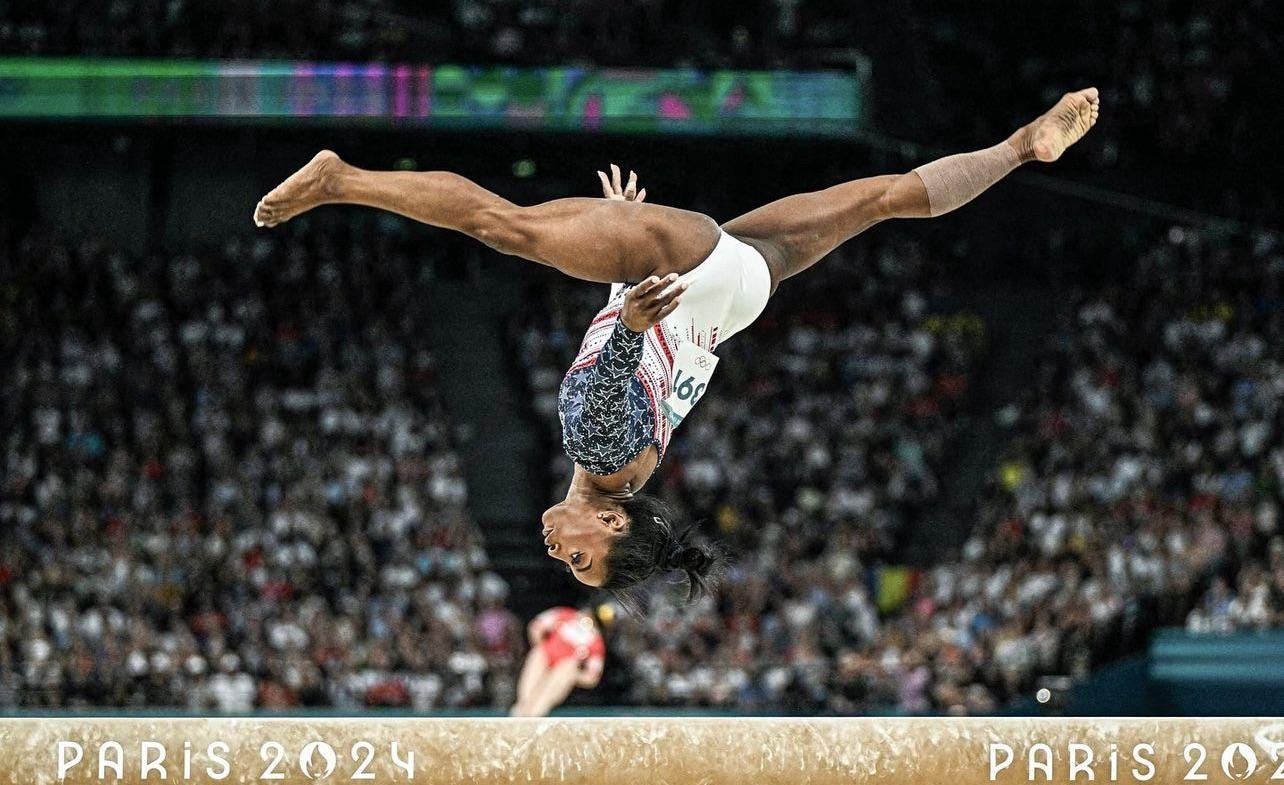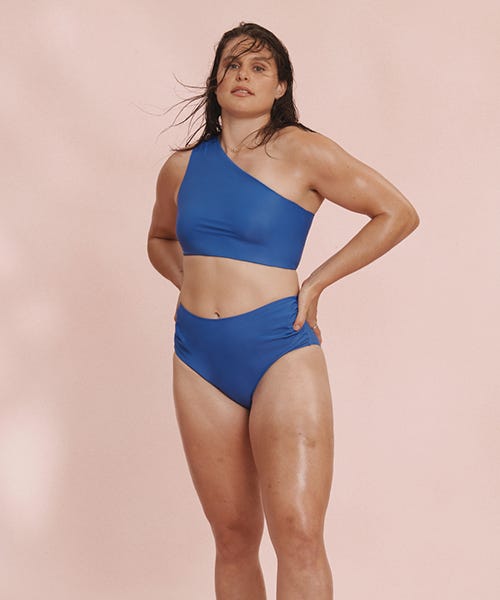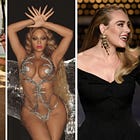Gentle readers: I haven’t written an original post in over a month, and feel bad about it even though you probably didn’t notice. I’m grateful you’re still here in any case. I’m getting my writing rhythm back after focusing on my live storytelling show in D.C., The Body Show, which sold out its whole run and was deemed a “Best of Fringe 2024” show in the Capital Fringe Festival. It was fantastic, and I’m still a little wiped out. I’m lining up lots of new posts for August, so if this has found its way to you and you’re not yet a subscriber, please smash:
While I try to remember how to write good, here’s a quicker hit this week courtesy of Olympics chatter on social media. Look out, I’ve thought too long about a tweet again:
It’s true that the Magnificent Seven (on the left) experienced highly restrictive diets and various abusive behaviors at the hands of their coaches, Bela and Marta Karolyi. Simone Biles has also spoken about being so hungry at the Karolyi training camp when she was younger that she would break into the cafeteria to eat. It’s worth pointing out the positive shift in women’s gymnastics away from a standard that entitles athletes training for eight hours a day to only “one slice of salami, two nuts, and a glass of milk” for breakfast, according to Rodica Dunca, an athlete who trained under the Karolyis. “Hunger was our eternal enemy,” she said.
While I enjoy seeing women athletes of any kind who are on the swoler side of the street, I also realize that re: women’s gymnastics this is an adaptation to the current demands of the sport more than it’s a decision to let women be more muscular just because it looks, in my opinion, badass.
So while it’s cool to see gymnasts who are a little more muscular — because TBH, the body types of the women in those pictures are not that different; Kerri Strug still looked like this in 1998 — I hesitate to think of it as potentially healing. Why? It’s straightforward: Your healing about your body should not and cannot depend on what’s going on with anyone else’s.
I’m not saying you shouldn’t feel encouraged or pleased by body diversity or seeing bodies that look like yours. I’m delighted by how Ilona Maher loves her body, for example, because the essence of her physique is kinda similar to mine1. That’s nice!
While observing body diversity can certainly contribute to feeling better about your own, I’m wary of the idea that it’s a primary means to that end. The concepts of body positivity and acceptance, in the shallow way mainstream media tends to present them, have placed too much emphasis on how image — body image as a concept, images of other people — affects us, and not enough on the only thing with any real staying power when it comes to feeling better about your body: Striving for a sense of embodiment based on your own values.
Put another way, what I feel would be most healing for all of us is to care less about what other people’s bodies look like, full stop, and focus on how it feels to live inside our bodies and what our values around movement, nutrition, beauty standards, and body culture have to do with it.
As cool as it might be, the U.S. women’s gymnastics team being a little more muscular now has nothing to do with you. If you value being stronger and more muscular you will find the deepest healing and self actualization by bringing your behaviors into alignment with that. What’s great about this is that it’s unshakable — if you do what you really want with your body, other people’s don’t influence you as much, for better or worse.
We’ve seen what happens when we depend too much on others, like celebrities or plus-size influencers, for validation of our bodies: theirs might change — because of whatever values, motivations, agendas, resources, and access they have — and then our sense of self is toppled because it was never really ours to begin with.
At this point I rule nothing out where bodies and associated trends and standards are concerned. Degrees of curves and thinness and muscle and ass size and cheek fat and cosmetic interventions and whatever mainstream culture thinks body positivity is are going to trend in and out for the rest of my life, I reckon. I can’t keep up, so I’ll just keep to myself.
The Ilonas and the Simones of the world don’t have my admiration primarily because they’re not waifs and neither am I. They have it because they have picked a way to live that allows them to feel powerful, purposeful, and unapologetic. May we all.
Big traps and shoulders, quad dominant, kind of a rectangle (respectfully, proudly).










It feels like it’s always about how pleasant a body looks to someone else, but our bodies are not made to please others' gazes.
Damnnnnn. Take as much time away as you need (especially if it means you keep coming back to us hot af with this rare, beautiful TRUUUUUTH)🔥😮💨